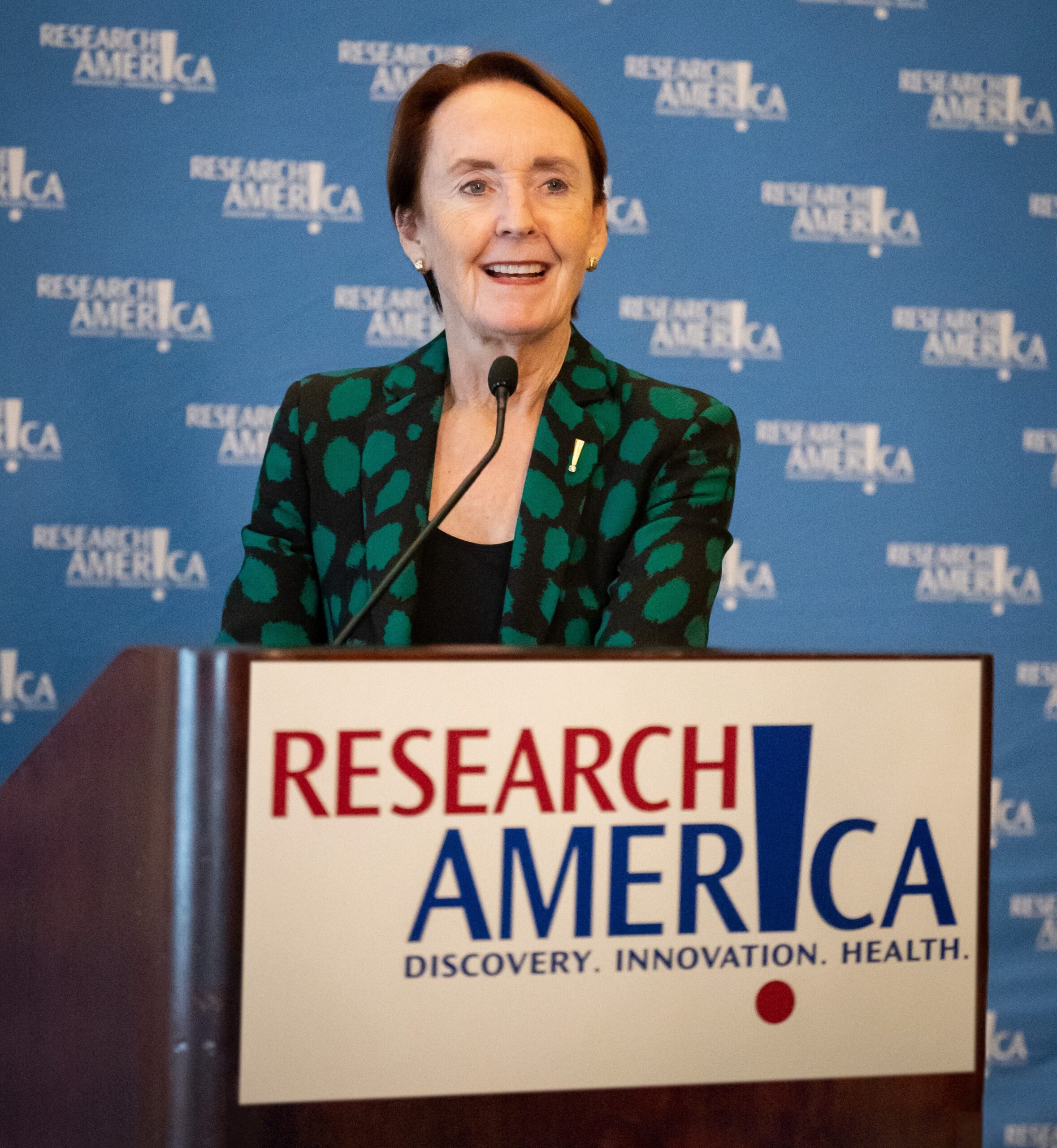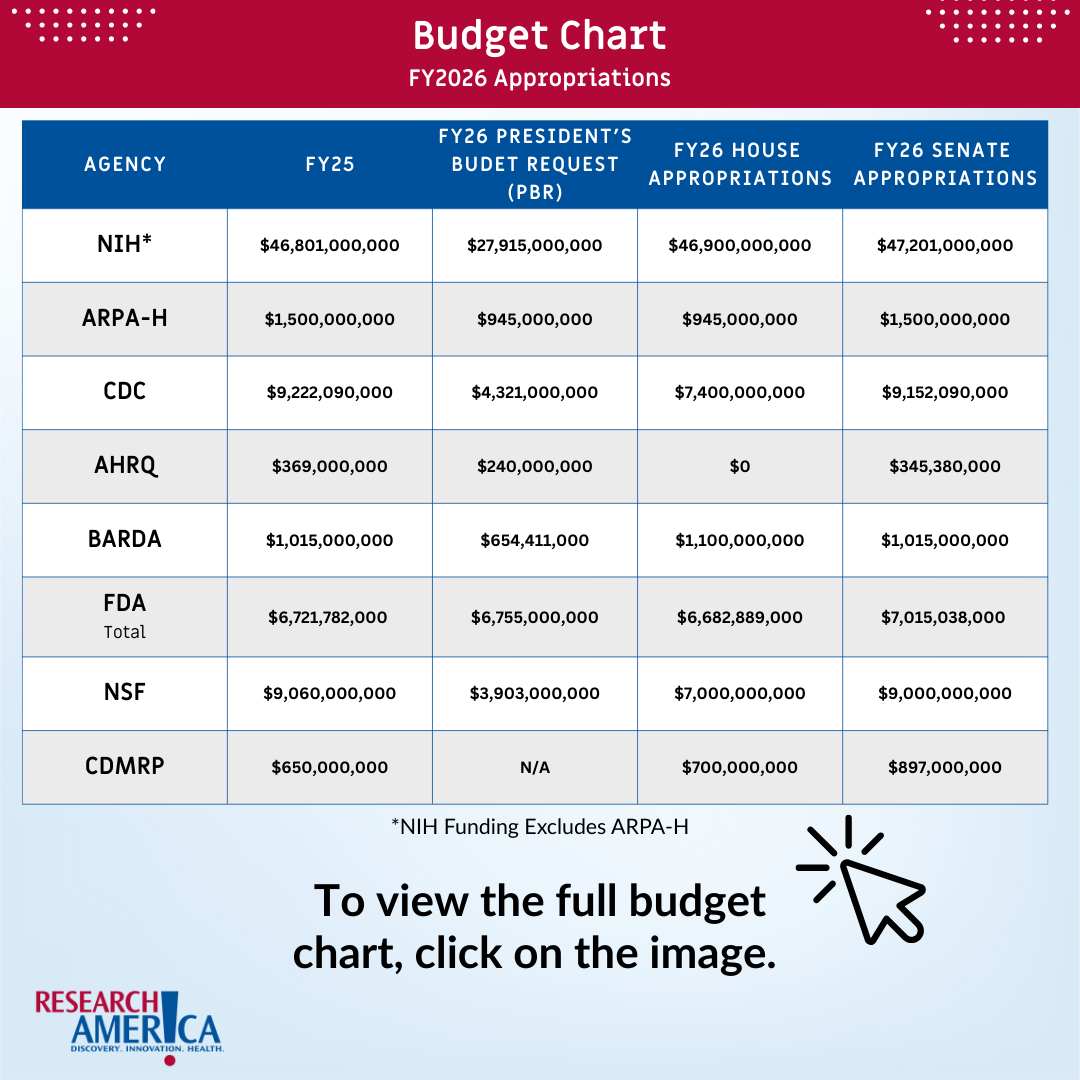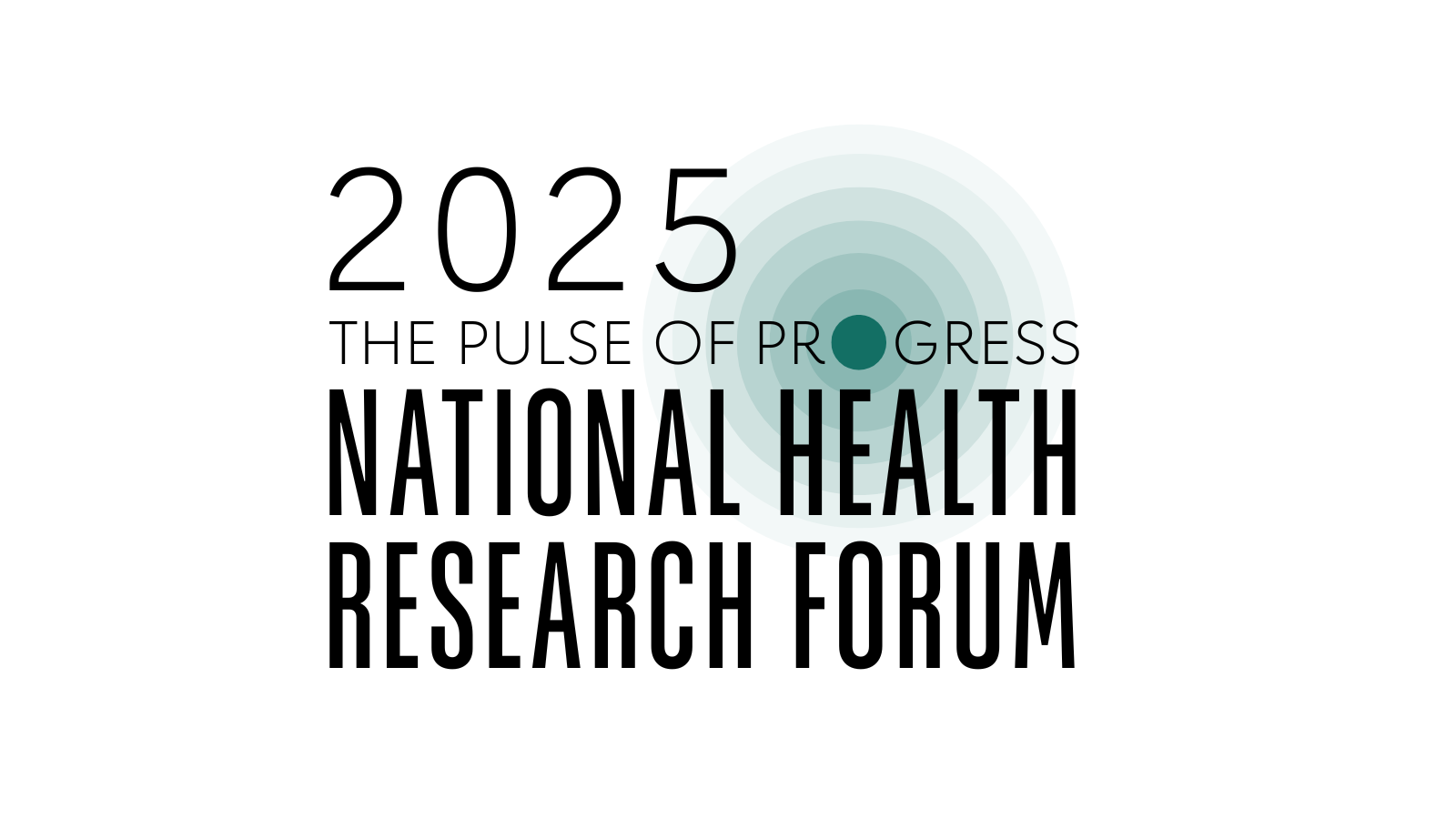Advocacy Works

Earlier this week, the House Appropriations Labor-HHS Subcommittee advanced its FY26 spending bill which allocates $46.9 billion for NIH – a slight increase in the base budget. Like the Senate’s bipartisan bill, this funding level is a major departure from the nearly 40% cut the administration proposed earlier this summer. Notably, the bill funds all 27 existing NIH Institutes and Centers rather than adopting the administration’s proposed reorganization/consolidation.
Let me stop right there to reiterate the title of this letter: Advocacy Works. Your efforts – your emails and calls to your representatives, your willingness to sign on to letters to appropriators, and your role in raising public awareness about the value federal funding for research delivers – made a difference. We hear it from members of Congress and their staff members, and we see it in this funding level for NIH. You can read our statement on the House bill here.
Advocacy works and more advocacy is needed, not just to ensure a positive result for NIH, but to address deeply concerning results for other HHS agencies. The House bill proposes eliminating AHRQ, cutting the CDC budget by 19%, and reducing the ARPA-H budget by 37%. (As noted below, we will be discussing advocacy strategies during an upcoming alliance member-only meeting.)
All of this is happening against the clock. The government’s current funding runs out at midnight on Sept. 30, the last day of the fiscal year. If Congress doesn’t act in time, the American public will be forced to endure a government shutdown. House Appropriations Chair Tom Cole (R-OK) said he hopes Congress will pass a short-term continuing resolution (CR) to extend funding until sometime between Nov. 6 and Thanksgiving, avoiding a shutdown and affording more time to complete the FY26 appropriations process.
CRs are far less than ideal, but Americans should not have to weather another government shutdown that sidelines their priorities. See our primer for more information on CRs and shutdowns.
Speaking of the Budget: AAU is spearheading a letter that will be sent from business leaders to appropriators in the House and Senate in support of sustained funding for the NSF and overall federal investment in basic research. The letter emphasizes that NSF supports basic research and innovation – a driver of economic growth – and is an important contributor to training the U.S. R&D workforce. Advocates are urged to ask their business contacts to sign onto this letter, which will be sent to Congress the third week of September.
Off the Hill: The White House Office of Management and Budget has released a 940-page budget guidance document, known as the A-11 Circular, which provides instructions to federal agencies as they prepare the FY27 budget and carry out current spending.
While issuing an A-11 Circular is the norm, the latest version puts into writing the administration’s assertion that the president can delay or cancel federal agency spending without affirmative action by Congress. This assertion counters a 1974 law that has been widely interpreted as making such “impoundments” illegal. Many believe that ultimately this issue will be decided by the Supreme Court: Are annual Congressional appropriations suggestive or directive? Do appropriations bills set funding levels or funding caps? We will keep you informed as this pivotal debate continues. (Here is a useful “Impoundments 101” resource.)
Breaking News: NIH Director Dr. Jay Bhattacharya is joining us as our keynote speaker Sept. 17 for our in-person session of the 2025 National Health Research Forum in Washington, D.C. Be sure to register to hear his remarks; you’ll also have exclusive access to new public opinion research, and much more.
Also, don’t miss the Sept. 10 virtual session, featuring Dr. Julie Gerberding and Dr. Sudip Parikh, who will explore the evolving federal landscape for medical and health research.
You can register at the same link listed above.
A special thanks to those who joined us on Sept. 3 for the virtual early career researcher sessions that kicked off our Forum.
Interested in partnering with us for this event? Check out sponsorship opportunities here or contact Kristen Furlong.
August Challenge Thank You: A huge thank you to everyone who participated in the August Advocacy Challenge. Your advocacy at this time is critical. We’re extending the video component of the challenge through the Rally for Medical Research (see below). Stay tuned here for the announcement of winners, and don’t forget to submit your scorecard to Trent Carlson to be eligible for a prize.
Member-only Discussion: Join us for an alliance member-only meeting on Tuesday, Sept. 9, at 11 a.m. ET. We’ll catch up on the FY26 appropriations and FY25 rescissions landscape; the upheaval at CDC and its implications; the recent Commerce Department announcement on collecting royalties from academic patents; new insights on NIH foreign research partnership funding; and whatever else may be top of mind for Research!America members. Special guests Paul Kim and Lindsay Garcia will join us to help navigate these complex and consequential topics. Note: this meeting is not open to the press or organizations outside the Research!America alliance. Email Jacqueline Lagoy for the Zoom registration link.
Rally for Medical Research: The 13th Annual “Rally for Medical Research Hill Day” is fast approaching and so is the deadline to sign up for the event. The rally in Washington, D.C., is planned for Thursday, Sept. 18, and the deadline is this coming Monday, Sept. 8. Here is a link to sign up.Kudos to AACR and Jon Retzlaff for masterful organization of this signature annual program, in especially high gear now!
Donate Now: As detailed above, the annual appropriations process is at a pivotal moment for research funding. Your support is crucial in enabling Research!America to:
- Advocate for a heightened federal commitment to medical and health research.
- Educate policymakers and the public about the on-the-ground impact of scientific discovery and medical progress.
- Expand the size and reach of the research advocacy community.
Together, we can ensure that research remains a national priority. Our work cannot wait. Decisions made in the coming weeks will shape the future of medical innovation for years to come. Donate now.
Thank you for your support and for all you do to assure better health, quality of life, security, and prosperity.






